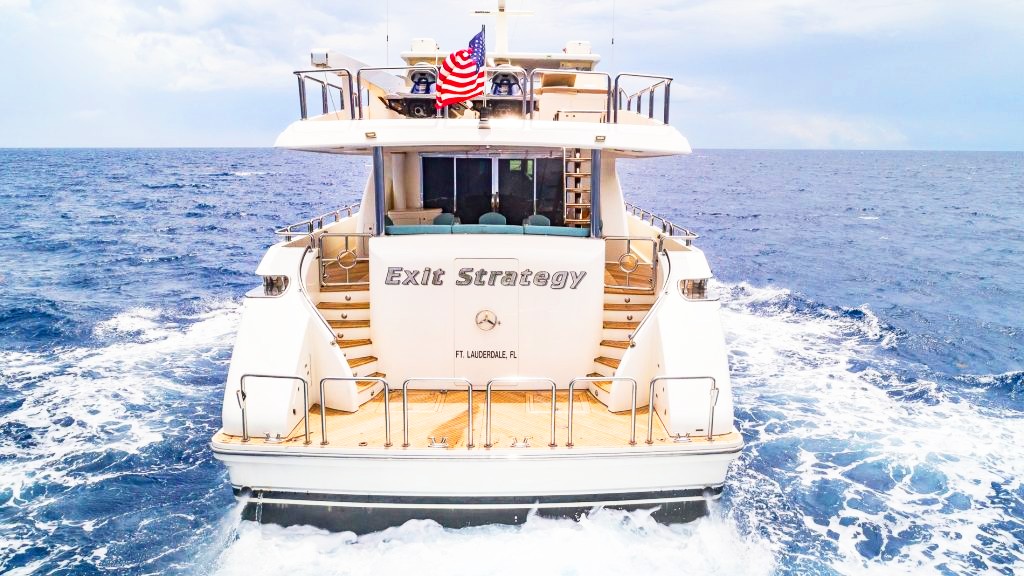Brookes: The Ticking Time Bomb of CBI Real Estate – Investors Have No Clear Exit Strategy
Let me start by asking you a candid question: Would you consider investing in a hotel shareholder scheme, the resale value of which is dependent on unpredictable regulators, situated in a country you have never visited and are never likely to visit?
This is the question I pose to any of our clients that ask our honest opinion on CBI projects in the Caribbean if they haven’t already themselves come to the conclusion that this is a risky proposition.
The answer to the question is very likely to be a ‘no’ unless the conditions are unusually favorable, such as a decent return per annum, and with a demonstrable, clear-cut exit strategy bolstered by a healthy secondary market, all set against the backdrop of a predictable regulatory environment. In that very particular situation, one might make a good argument for this type of investment.
Read also: Industry Largely Welcomes Grenada CIP’s 20% Equity Rule, But Not Everyone is Happy
As of today the number of government-approved investment projects available among Caribbean CBI-jurisdictions are distributed as follows:
- Saint Kitts & Nevis – 96 projects
- Antigua & Barbuda – 42 projects
- Grenada – 17 projects
- Dominica – 7 projects
- Saint Lucia – 1 project
Visit CBI Real Estate Watch to see an overview of the construction status of all Caribbean CBI-projects.
Almost all of the 163 projects consist of a hotel model where the client can invest a minimum amount as stipulated by the CBI regulations (see below) into a share/fractional share structure to be held for five years (in some cases three) or more. There are options for freehold title deed, though the investor needs to allocate – at the very least – $1 million for that privilege.
Purchasing a villa outright within the CIU-approved Greenbelt makes a lot of commercial sense with potential good yields and appreciation and a fully owned freehold title deed, an option we do advocate. These types of investments, however, tend only to apply to lifestyle investors or UHNWIs, rather than to the majority of CBI-derived investors looking to invest the minimum amount to obtain citizenship.
When evaluating an investment option, you should, as a matter of common sense, consider the change in laws that may arise during the term of the investment, and how that may impact your exit from it. A good example is the government-decreed CIP minimum investment amount, which can shift drastically and unpredictably at any given time, especially given the competitive nature of the islands vying for the favor of new CBI prospects.
Over the last 18 months alone, we’ve seen a reduction in minimum investment requirements in
- Saint Kitts & Nevis, from $400,000 to $200,000;
- Grenada from $350,000 to $220,000
- Antigua & Barbuda; from $400,000 to $200,000
Only Dominica and Saint Lucia (US$200,000 and US$300,000, respectively) have not reduced their asking prices, but this is probably because Dominica entered at a lower threshold to begin with and, in Saint Lucia, because only one proposed project has been given the green light.
So, imagine an investor who paid the minimum $400,000 two years ago, who now has the challenge of finding a buyer in three years that is prepared to purchase his/her hotel share at twice the amount of the minimum required by the program. Good luck with that!
In three years’ time, they will need to split their shares (if legally/contractually able to) and persuade two CBI investors to take their investment off their hands with the implied assumption that the pricing landscape and citizenship programs laws remain as they stand today.
You don’t need to be a savvy investor to realize that the above conundrum represents an investment strategy fraught with risk, uncertainty, and an uphill battle to find buyers in years to come.
Read also: 51 out of 160 Caribbean CBI Real Estate Projects Confirmed as Completed
It’s for this unfortunate and frustrating reason that we have been reluctant to put investments forth to our clients in my six years of working with the Caribbean programs. I want to maintain a good working relationship with that client in five years’ time. I don’t want them coming to us to complain they cannot sell the investment we proposed.
I don’t want to be misunderstood in saying the hotel projects and its operations are a bad investment; far from it. There are some beautiful and successful hotels with excellent leadership. Recent news from the Caribbean have shown the respective CIUs are looking at ways to ensure hotel projects get off the ground and developers are scrutinized and required to put down substantial deposits to assure investors that their investments are ‘safe’.
But this does little to address the elephant in the room; CBI-investors will have a very hard time selling a fractional share. Imagine the PR-nightmare of having hundreds of CBI-investors unable to sell their shareholdings in the coming years. This is a ticking time bomb!
Back to the drawing board
This is where the CBI investment strategy needs a serious rethink and overhaul for the greater good of the economies and communities of the Caribbean islands, as well as for giving investors something with a demonstrable resale value after the minimum holding period.
The hotel fractional share schemes should be abandoned in favor of freehold only title deeds on rooms/apartments and condos within the hotel project, a model that works very well here in the UAE. We should see a lot more diversification into other commercial opportunities on the islands where people can invest the minimum amounts in locally approved business entities, private schools, hospitals, renewable energy projects and so on, perhaps administered by competent fund managers.
Aside from raising tens of millions of dollars for the varying social donation funds, I am eager to drive investment to the Caribbean and to the islands I have come to love, but not as the programs stand today. A much larger percentage of CBI clients would opt for an investment (let’s face it, no one wants to lose money via a donation route if they can help it) but only if it were viable, generated returns above inflation, and could be sold in a secondary market. The industry is under tremendous scrutiny, and I would welcome new initiatives that generate a win-win for all parties concerned, something long overdue!
Gareth Brookes is the founder and managing partner of Brookes & Partners, a Dubai-based investment migration consultancy.



